|
This
German speaking Sudetenland minority was used as an excuse by Adolf Hitler to
further his dream of "Ein Volk - Ein Reich - Ein Fuhrer ("One nation
- One Country - One Leader").
With the co-operation of the Sudetendeutsche Partei (the Sudeten German
Party) Hitler secrectly created and armed the Sudetendeutsche Freikorps (the
Sudeten German Freecorps). Disturbances initiated by the Freekorps forced the
Czechoslovakian Government to mobilize his forces on the May 20,
1938.
On September 12 a huge Nazi rally was held at Nuremburg. Hitler made his
famous Sudetenland speech, were he insisted that Sudetenland should be part of
Germany or they would invade Czechoslovakia.
On the September 22, 1938 the British Prime Minister Neville Chamberlain
flew to to meet Hitler at Bad Godesberg.
At this meeting Hitler handed Chamberlain an ultimatum, which set out
Germany's terms for a settlement of the Sudetenland question. Chamberlain was
not successful in convincing Czechoslovakia to accept Hitler's terms.
Germany
next sent an ultimatum to Czechoslovakia that the problem had to be
resolved by midnight September 28, 1938. At
the same time many infantry and armoured units moved close to the
Czechoslovakian border.
This caused a flurry of diplomatic communication
between France, England and Czechoslovakia. Chamberlain made a plea to Hitler
to start negotiations.
Hitler agreed to delay his invasion 48 hours and invited the British
Prime minister, the French Premier and the Italian Dictator Benito Mussolini to
Munich for further talks.
The Czechoslovakian negotiators were not invited!
The september 29, 1938 talks ended with those gathered conceding to all
of Hitler's demands. The only concession that was obtained to Hitler's Godesberg
ultimatum was that the occupation was to be spread over the first 10 days of
October. The "Munich Agreement" had been signed. Returning
back in England, Chamberlain uttered the now familar phrase "Peace in our
time".
The curtain was now raised for the beginning of the end of the history
of Sudetenland and a start of a interesting philatelic story!
|
In Asch,
Karlsbad, Konstantinbad, Niklasdorf, Reichenberg-Maffersdorf
and Rumburg the stock of Czech stamps and Postal Stationary was overprinted
by the Sudetengermans.
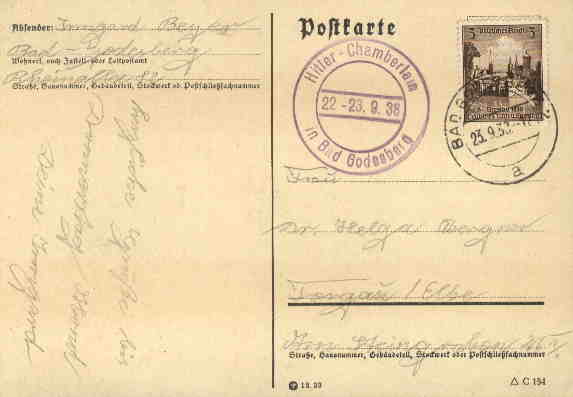
Card from Bad Godesberg canceled with a commemorative catchet of the
first meeting between Hitler and Chamberlain September 22 and 23, 1938. This catchet was made locally
and only in use in these two days.
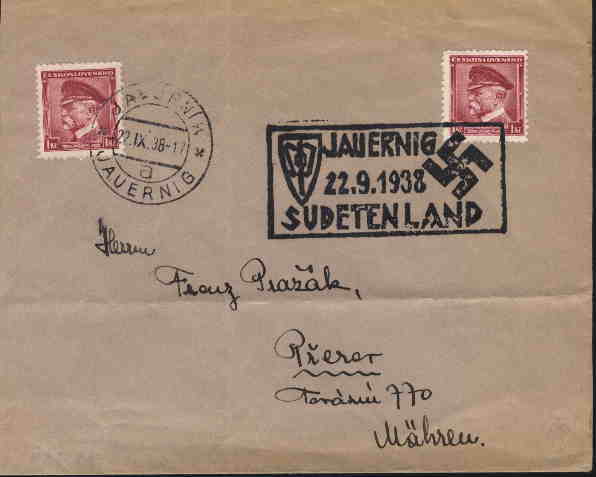
|
Cover from Jauernig canceled with a Freecorps liberation cancel and
a Czech bilingual cancel from September 22, 1938. |
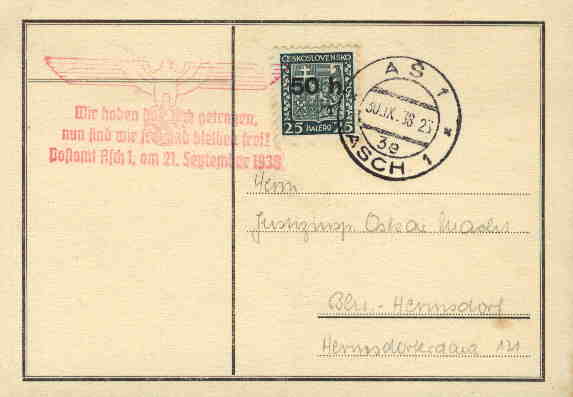
|
Card from Asch canceled with a liberation cancel with fixed date and
a Czech bilingual cancel.
Only 765 stamps were overprinted in Asch. |
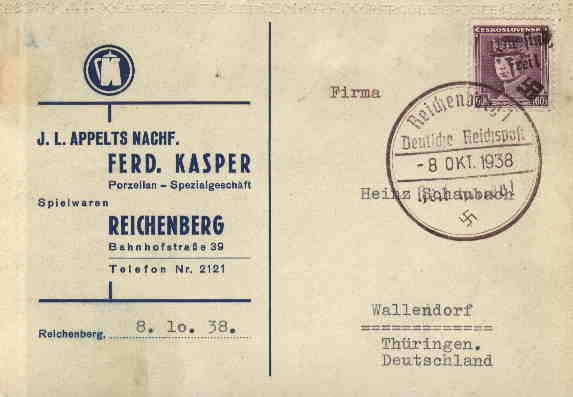
|
Commercial card from Reichenberg canceled with a liberation cancel which
only was in use October 8, 1938.
Only 2500 of this stamp were overprinted in Reichenberg-Maffershof. |
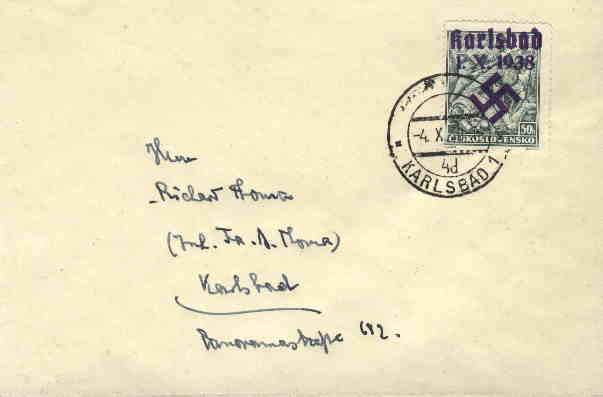
|
Cover from Karlsbad canceled with bilingual cancel where the Czech part
was removed.
Only 124 of this stamp were overprinted in Karlsbad. |
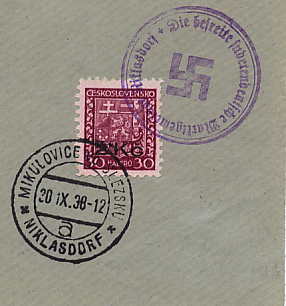
|
Part
of cover canceled with a bilingual unaltered Czech cancel and a liberation
cancel.
Only
560 of this stamp was overprinted in Niklasdorf. |
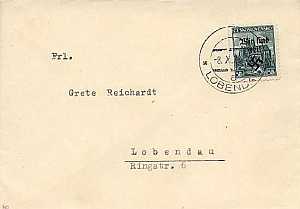
|
Cover from Lobendau canceled with a bilingual cancel where the Czech part
was removed. The stamps were overprinted in
Rumburg.
|
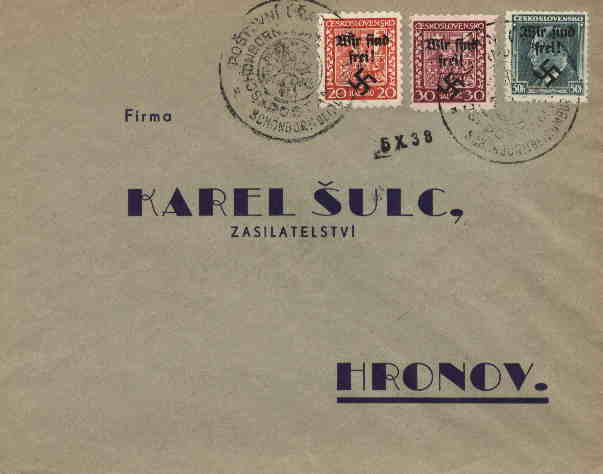
|
Cover from Schönborn bei Rumburg canceled with a bilingual office
cancel. The stamps were overprinted in Rumburg. |
Home
Next
|